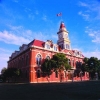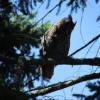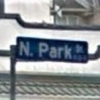
South Island Aboriginal and First Nations issues and discussion
#281

Posted 18 September 2019 - 11:38 AM
#282

Posted 18 September 2019 - 11:58 AM
https://www.cbc.ca/n...uxalk-1.5287592
PS- why are first-nations languages always referred to as "traditional"? does anyone call english a "traditional language", even in england? what if someone from the bbc pointed out that boris johnson answered questions in parliament in his "traditional language", and isn't that wonderful look at him go! as if it's from another time & place. or when alliance française opens a location in a new city & celebrates bastille day nobody says it's to promote france's "traditional language & culture" you get the picture
Time for an odd aside about language and stop signs.
Years ago Quebec changed all their stop signs to say arrête to make them more "French".
It turns out the French borrowed many words from the Romans when they invaded Gaul. For instance, the word for window in Latin 'fenestra' was borrowed by the Germans as 'fenster' French as 'fenêtre'. The Latin verb for stop is arrester, which the French borrowed as 'arrêter'. The circumflex shows that the 's' was removed because it was difficult for the Gallic toungue/sensibiities to pronounce. That rule is true for many words the French borrowed from Latin.
In other words, Quebec simply used a borrowed word from another earlier era. Even more surprising, the word 'stop' goes was back in French prior to the Romans. Its original usage was more what we'd use as "bottle stopper" and is also associated with our verb "to stuff".
One of the earliest "laws" in the field of etymology is Grimm's Law(s) which describe how the some European languages change the sounds of words when they borrow them.
Stop signs in France say "stop" more because of the international standard than the root of the word.
- Mike K. and weirdie like this
#283

Posted 18 September 2019 - 01:37 PM
Know it all.
Citified.ca is Victoria's most comprehensive research resource for new-build homes and commercial spaces.
#284

Posted 18 September 2019 - 04:53 PM
also what’s the reconciliation timeline? when is it over or is it open-ended? what’s the minimum and maximum financial ramifications for city taxpayers? and where are the oak bay esquimalt and saanich reconciliations at? do we all reconcile individually in each municipality?
FN leaders have stated that it will take 5 generations (150 years) to address the issue.
#285

Posted 18 September 2019 - 05:15 PM
Edited by Victoria Watcher, 18 September 2019 - 05:16 PM.
#286

Posted 18 September 2019 - 05:20 PM
^ I wouldn't doubt it. The only residential school on the south island closed 100 years ago but clearly children born recently are still traumatized by it. Could easily take 150 more years to address.
#287

Posted 18 September 2019 - 05:29 PM
so 150 years would be generally 7.5 generations or more.
Edited by Victoria Watcher, 18 September 2019 - 05:33 PM.
#288

Posted 18 September 2019 - 07:01 PM
that doesn't surprise me, the portuguese inquisition ended officially about 200 years ago and it was only fairly recently (2009?) that they made the descendants of their jews eligible to get citizenship, and that the synagogue in porto (biggest in the country) got restoredFN leaders have stated that it will take 5 generations (150 years) to address the issue.
yes, when the inquisition ended in portugal the closeted jews who hadn't left the country didn't suddenly come out of hiding and party like the end of return of the jedi, it was more like deafening silence. it seems old habits die hard, for everyone^ I wouldn't doubt it. The only residential school on the south island closed 100 years ago but clearly children born recently are still traumatized by it. Could easily take 150 more years to address.
the library website has a recording of the proper pronunciation. it's something like swheng-whung-tung-ewh.I enjoy learning bits of new languages. If I pass by the James Bay Library and see the sign, I'm not going to remember anything about the indigenous name. I wouldn't have an easy time typing it into my phone or remembering it. Google Lens, bless its multilingual heart, probably wouldn't identify it. Even if I had enough interest to take a picture, it would be a sleuthing effort to find a translation.
Many of the written Canadian indigenous languages use some rather arbitrary character sets that were established long ago, often by missionaries. Changing to a character set that is familiar to the other residents of the area would be less of a barrier and would give the language a better chance of survival.
https://www.gvpl.ca/...mes-bay-branch/
in sxʷeŋxʷəŋ təŋəxʷ if it's like SENĆOŦEN, the first prefix s- is the nominalizer (as in nominative case), the following prefix xʷ- indicates a place (equivalent to in, on, at, etc), the final suffix -ŋəxʷ refers to a living being, person or people (etc). the rest I couldn't figure out right away. in english, words like antidisestablishmentarianism are monstrosities because of all the affixes (anti-, dis-, -ment, -arian, -ism) but it's quite common for north american languages to have many (the fancy word is polysynthetic).
#289

Posted 18 September 2019 - 07:37 PM
How would one pronounce tsayalhx?
Stop.
- SimonH likes this
#290

Posted 18 September 2019 - 07:43 PM
...in english, words like antidisestablishmentarianism are monstrosities because of all the affixes..
Nevertheless, it can still be pronounced quite easily phonetically.
#291

Posted 18 September 2019 - 09:30 PM
Nevertheless, it can still be pronounced quite easily phonetically.
i must have misunderstood, you all sound like you want transliteration, or romanisation, because sxʷeŋxʷəŋ təŋəxʷ is written phonetically. so there's no ambiguity about what sounds are intended, but it's notation meant for linguists & not probably not people who are used to the english alphabet. i guess i can understand that but i still don't know what to do about all the sounds that don't exist in english. what I was getting at with the bit about antidisestablishmentarianism was that those languages are fundamentally very different from english. i mean at the machine code level. they've got different building blocks and that could be part of the difficulty since the sequence of 4 symbols -ŋəxʷ represents one idea and how is a reader supposed to know that?
#292

Posted 19 September 2019 - 08:51 PM
i must have misunderstood, you all sound like you want transliteration, or romanisation, because sxʷeŋxʷəŋ təŋəxʷ is written phonetically. so there's no ambiguity about what sounds are intended, but it's notation meant for linguists & not probably not people who are used to the english alphabet. i guess i can understand that but i still don't know what to do about all the sounds that don't exist in english. what I was getting at with the bit about antidisestablishmentarianism was that those languages are fundamentally very different from english. i mean at the machine code level. they've got different building blocks and that could be part of the difficulty since the sequence of 4 symbols -ŋəxʷ represents one idea and how is a reader supposed to know that?
Just give the colonials a break and tell them how to pronounce it in a way that they understand. "Dumb it down" if you must, but get them on board. See the "Slanguage" series of books for example.
#293

Posted 20 September 2019 - 08:39 AM
Edited by amor de cosmos, 20 September 2019 - 09:01 AM.
#294

Posted 20 September 2019 - 12:07 PM
^ The only residential school on the south island closed 100 years ago but clearly children born recently are still traumatized by it.
This just means kids had to be sent farther away.
Kuper island (Penelakut Islandjust off chemainus) closed in 1975.
#295

Posted 20 September 2019 - 03:26 PM
https://www.scienced...024384183900451
I haven't really gotten into it and it is likely to be a slog because I was cursed by learning english in BC schools, and even managed to get through my university english requirement without ever learning the meanings of grammatical terms like subject, predicate, direct object, indirect object, subordinate clause, conjunction, (etc). that article also came out in 1983 so I don't know how fringe that idea is or was (though I suppose the author was very well respected), or whether it's just a theoretical thing that would only matter to linguists, or it has practical consequences for people learning. i knew haida doesn't have adjectives, but just substitutes them for more verbs. so in the phrase "bill reid is talented", rather than "talented" being a predicative adjective & "is" the linking verb, the verb is "to be talented". the idea that the salish family doesn't have nouns or verbs in the sense of other languages must sound totally bizarre.
Edited by amor de cosmos, 20 September 2019 - 03:28 PM.
#296

Posted 20 September 2019 - 07:21 PM
The Malahat nation had a golf tournament today so I guess they are well reconciled.
#297

Posted 20 September 2019 - 07:35 PM
sorry I think I may have underestimated how different the salish languages from the usual european (or indo-european) languages. it was previously thought that all languages always have nouns & verbs (otherwise they couldn't be considered languages) but even that has been disputed in the case of the salish family:
https://www.scienced...024384183900451
I haven't really gotten into it and it is likely to be a slog because I was cursed by learning english in BC schools, and even managed to get through my university english requirement without ever learning the meanings of grammatical terms like subject, predicate, direct object, indirect object, subordinate clause, conjunction, (etc). that article also came out in 1983 so I don't know how fringe that idea is or was (though I suppose the author was very well respected), or whether it's just a theoretical thing that would only matter to linguists, or it has practical consequences for people learning. i knew haida doesn't have adjectives, but just substitutes them for more verbs. so in the phrase "bill reid is talented", rather than "talented" being a predicative adjective & "is" the linking verb, the verb is "to be talented". the idea that the salish family doesn't have nouns or verbs in the sense of other languages must sound totally bizarre.
This is a very long and convoluted way to say it's a primitive language. Nothing wrong with that, but it's true.
#298

Posted 21 September 2019 - 09:07 AM
W̱: locative prefix, indicating a place
KEM¸: the root "word", breaking in two
EU¸ÁĆ: lexical suffix referring to bottom or bum
EN: instrumental suffix, their way of saying "with"
putting this back together, you get "thing with a break in two at the bum", which is their word for lizard, I suppose because a lizard can lose its tail and regrow another one. how could someone compress so much information into one english word? that's also actually a pretty simple example.
Edited by amor de cosmos, 21 September 2019 - 09:30 AM.
#299

Posted 22 September 2019 - 09:08 AM
This just means kids had to be sent farther away.
Kuper island (Penelakut Islandjust off chemainus) closed in 1975.
So every kid from South Island FN bands went to one school on Kuper Island? I am sure that some did but what percentage of Esquimalt and Songhees FN members were moved to Kuper Island to attend residential school? I suspect that it is very low.
#300

Posted 24 September 2019 - 07:22 AM
https://www.timescol...erta-1.23954582CALGARY — Canadian Utilities Ltd. says seven Indigenous communities have accepted its invitation to take a 40 per cent interest in a power transmission line between Edmonton and Fort McMurray in northern Alberta.
The Calgary-based utility company and its partner Quanta Services Inc. announced in June they had signed a deal to sell Alberta PowerLine for about $300 million and the assumption of $1.4 billion of debt to a consortium including TD Greystone Asset Management.
As part of the sale, Indigenous communities along the transmission line route were given the chance to buy up to a 40 per cent combined equity interest, with the final ownership mix based on acceptance.
The Indigenous communities that are investing in the line are the Athabasca Chipewyan First Nation, Bigstone Cree Nation, Gunn Metis Local 55, Mikisew Cree First Nation (by way of the Mikisew Group of Companies), Paul First Nation, Sawridge First Nation and Sucker Creek First Nation.
Use the page links at the lower-left to go to the next page to read additional posts.
2 user(s) are reading this topic
0 members, 1 guests, 0 anonymous users
-
Bing (1)
















